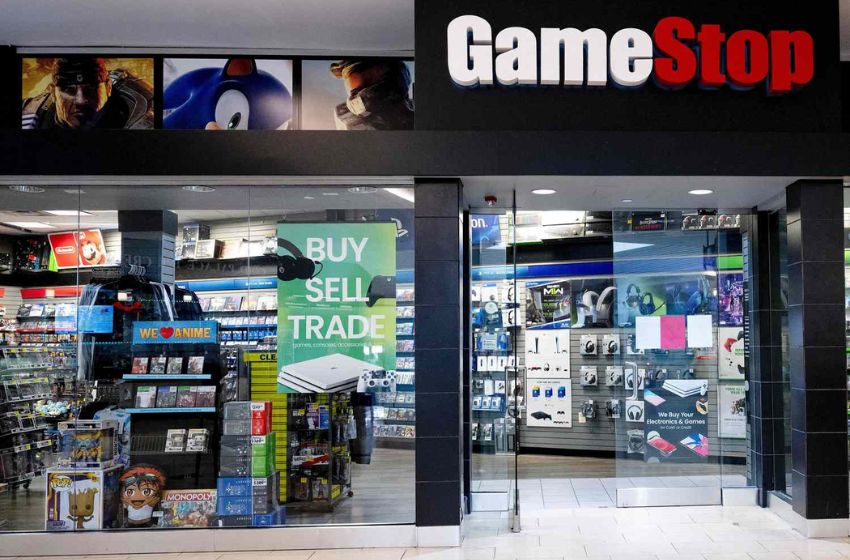In the fast-paced world of gaming, one small store made a big impact and forever changed the industry. Join us as we take a trip back to 1984 and explore how GameStop revolutionized gaming as we know it today. From humble beginnings to becoming a powerhouse in the market, this is the fascinating story of how one small store sparked a gaming revolution that continues to shape our favorite pastime.
Introduction to GameStop: The Birth of a Gaming Giant
In 1984, two Harvard Business School classmates, James McCurry and Gary Kusin, founded Babbage’s, a small software retailer that would later evolve into GameStop. This blog explores how GameStop revolutionized the gaming industry, from its humble beginnings to becoming a powerhouse in video game retail, digital distribution, and collectibles.

Origins of GameStop: From Babbage’s to a Gaming Empire
Babbage’s started as a software retailer in Dallas, Texas, focusing primarily on personal computer software and games. Under the leadership of McCurry and Kusin, the company quickly expanded its product offerings to include video games as the industry gained momentum in the 1980s. In 1994, Babbage’s merged with Software Etc., another retailer, forming NeoStar Retail Group. This merger laid the foundation for what would eventually become GameStop Corporation, marking a significant step towards consolidating retail operations and establishing a strong foothold in the gaming market.
The Evolution of GameStop: Embracing Console Gaming
As gaming consoles gained popularity in the late 1990s and early 2000s, GameStop capitalized on the growing demand for console games and hardware. The company expanded its store network and diversified its product lineup to include the latest consoles from Sony, Microsoft, Nintendo, and others. GameStop’s strategic partnerships with game publishers and console manufacturers further solidified its position as a leading retailer in the gaming industry, offering customers access to the latest releases and exclusive merchandise.
Power to the Players: GameStop’s Focus on Customer Experience
GameStop differentiated itself from competitors by focusing on customer experience and building a community around gaming culture. The stores became more than just retail outlets; they became gathering places where gamers could discuss new releases, participate in tournaments, and interact with knowledgeable staff members. GameStop emphasis on personalized service and expertise helped foster customer loyalty and contributed to its success in a competitive market.
Digital Transformation: Adapting to Online Gaming Trends
In the 21st century, GameStop embraced digital distribution and online gaming platforms, recognizing the shift towards digital downloads and streaming services. The company launched its digital storefronts and subscription services, offering customers a convenient way to purchase and download games directly to their devices. While physical game sales remained a core part of its business, GameStop’s foray into digital distribution expanded its reach and catered to tech-savvy consumers seeking instant access to their favorite titles.
Challenges and Innovations: Navigating Market Shifts
Despite its success, GameStop faced challenges in recent years, including shifts in consumer behavior towards digital downloads and online shopping. The rise of e-commerce giants and digital storefronts posed competitive threats to traditional brick-and-mortar retailers. In response, GameStop implemented strategic initiatives, such as diversifying its product offerings to include collectibles, merchandise, and gaming accessories. The company also explored new revenue streams through partnerships with esports organizations and streaming platforms, demonstrating its resilience and commitment to staying relevant in a rapidly evolving industry.

Conclusion: GameStop’s Legacy and Future Innovations
In conclusion, GameStop’s journey from a small software retailer to a global leader in gaming retail is a testament to its entrepreneurial spirit and adaptability. By embracing technological advancements and understanding the evolving needs of gamers, GameStop continues to shape the gaming industry landscape. As the company navigates through challenges and explores new opportunities, its commitment to innovation, customer service, and community engagement remains unwavering. GameStop’s legacy as a pioneer in gaming retail and its ongoing dedication to empowering players underscore its enduring influence and potential for future growth in the dynamic world of gaming.



